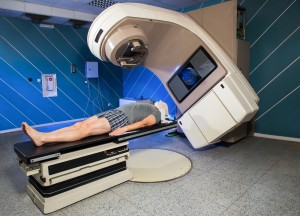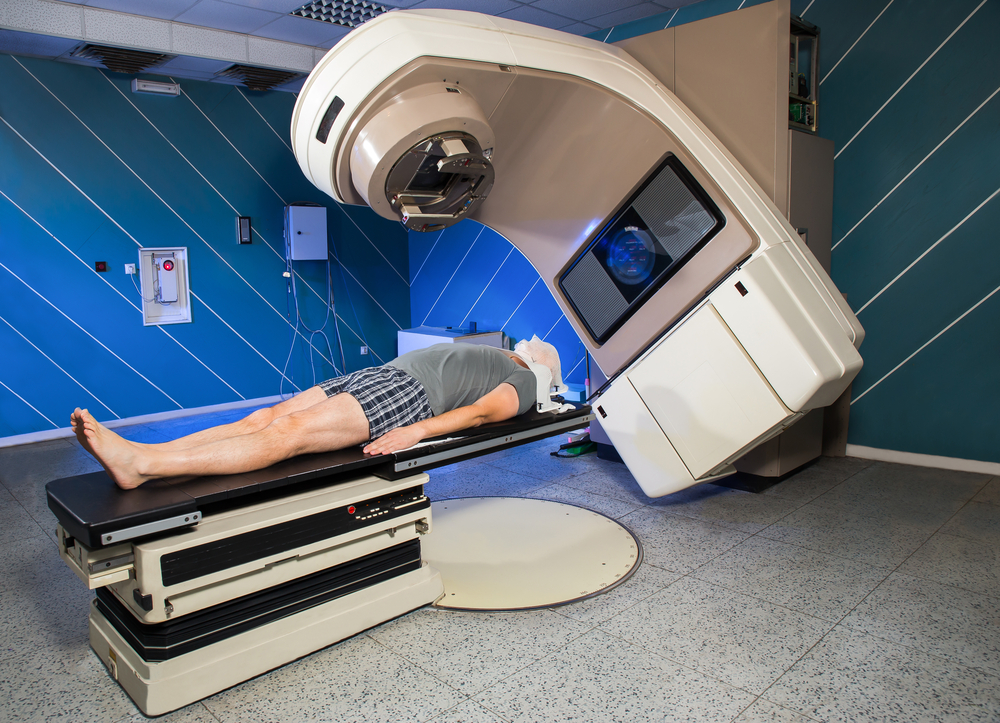 A study entitled “Radiation Protection of the Gastrointestinal Tract and Growth Inhibition of Prostate Cancer Xenografts by a Single Compound” published on November 14th in the journal Molecular Cancer Therapeutics, tested a panel of signal transduction modifiers for selective radio protection of normal but not tumour tissues. The aim was to examine an anti-cancer drug in the protection of normal cells from radiation damage.
A study entitled “Radiation Protection of the Gastrointestinal Tract and Growth Inhibition of Prostate Cancer Xenografts by a Single Compound” published on November 14th in the journal Molecular Cancer Therapeutics, tested a panel of signal transduction modifiers for selective radio protection of normal but not tumour tissues. The aim was to examine an anti-cancer drug in the protection of normal cells from radiation damage.
It is known that normal tissue toxicity markedly reduces the therapeutic index of genotoxic anticancer agents, including ionizing radiation. Countermeasures against tissue damage caused by radiation are limited by their potential to also protect malignant cells and tissues.
The team of researchers lead by Vitali Alexeev Ph.D. and Ulrich Rodeck, M.D., Ph.D., from the Thomas Jefferson University, Philadelphia, PA, tested five compounds in mice that were shown in previous studies to have radiation-protective features. These were given to mice daily for several days after radiation treatment.
 Of the five compounds tested, only RTA-408, a drug currently being developed by REATA Pharmaceuticals, emerged as the most robust and effective protector against lethal doses of radiation. Moreover, in mice injected with human prostate cancer cells, RTA-408 did not confer radiation protection to the cancer cells. Results showed that RTA-408 given alone, without radiation, slowed the growth of human prostate cancer transplants in mice. When combined, RTA-408 further amplified the tumor growth inhibitory effects of radiation.
Of the five compounds tested, only RTA-408, a drug currently being developed by REATA Pharmaceuticals, emerged as the most robust and effective protector against lethal doses of radiation. Moreover, in mice injected with human prostate cancer cells, RTA-408 did not confer radiation protection to the cancer cells. Results showed that RTA-408 given alone, without radiation, slowed the growth of human prostate cancer transplants in mice. When combined, RTA-408 further amplified the tumor growth inhibitory effects of radiation.
As Dr. Rodeck stated in a press release with regards to this study findings “ combining radiation and RTA-408 more effectively inhibited tumor growth compared to using either one or the other as single treatment modalities”, thus enabling further studies to understand how RTA-408 works and how its mechanism of action might be improved for use in clinical populations.
[adrotate banner=”21″]
REATA is currently enrolling patients for a topical form of the drug applied to those who experience radiation dermatitis. The clinical trial, PRIMROSE, is a randomized, double-blind, vehicle-controlled, parallel-group Phase 2 study that will assess the efficacy, safety, pharmacokinetics, and pharmacodynamics of RTA 408 Lotion in the treatment of patients at risk for radiation dermatitis.
For more information on the PRIMROSE trial you can visit this website.


